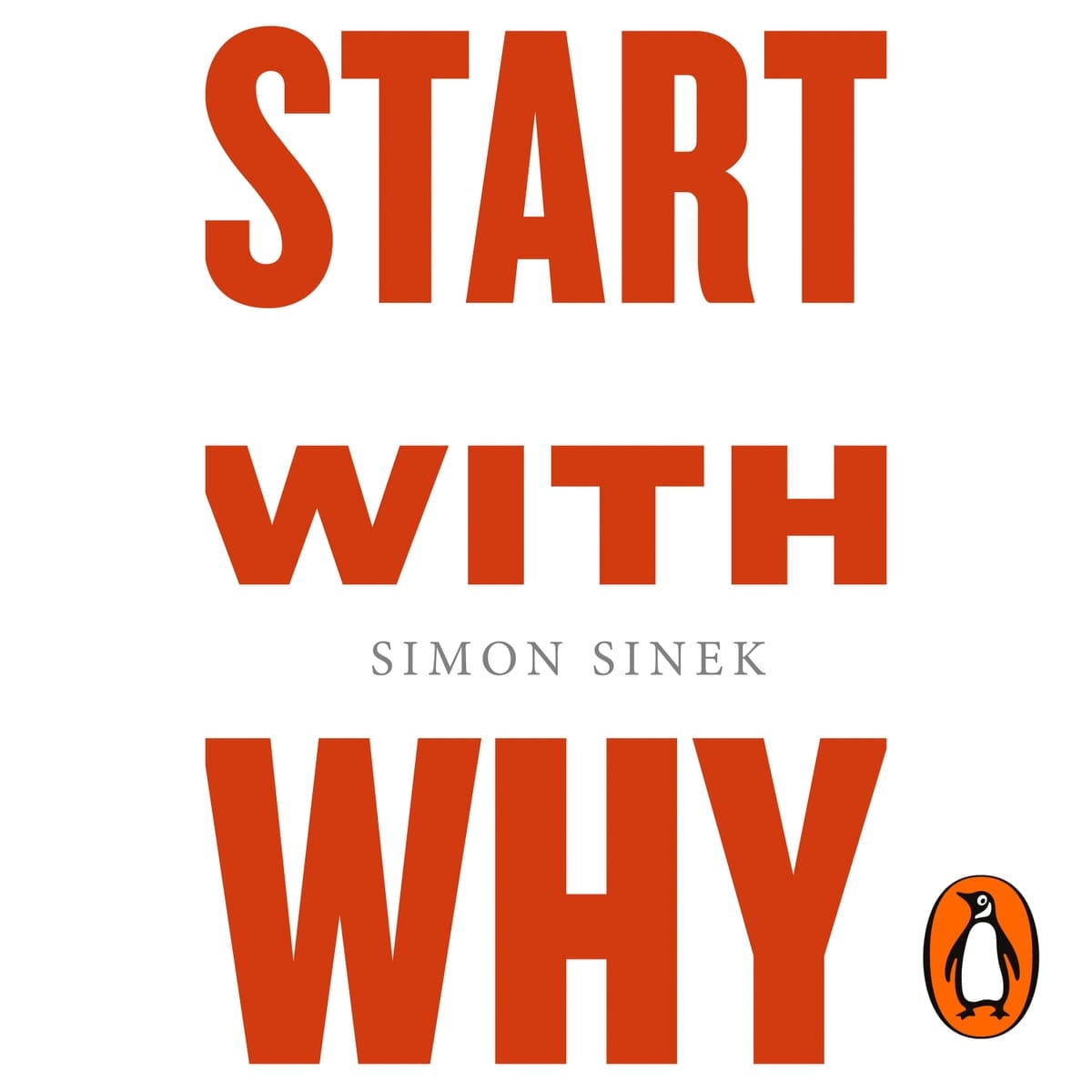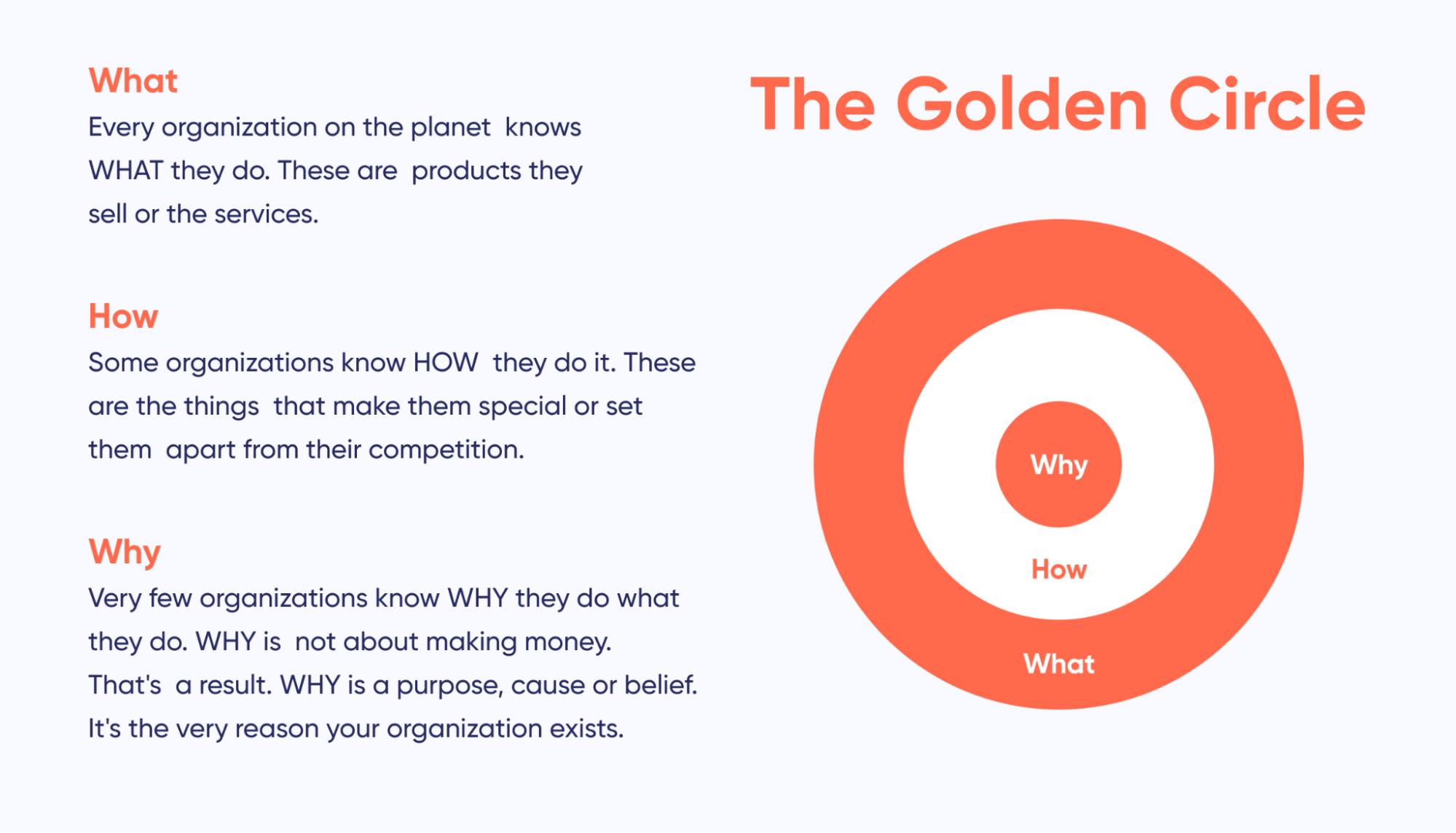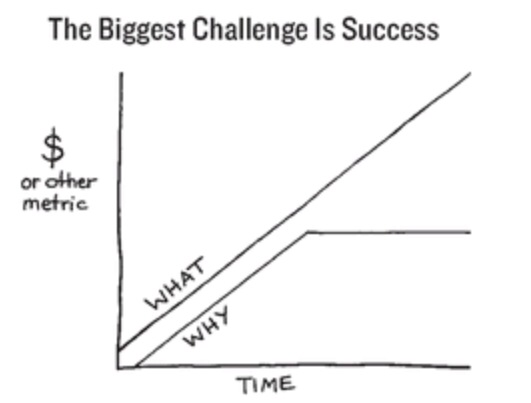Start With Why — Book Summary and Notes
Why do you do what you do? Why are some people and organizations more innovative, more influential, and more profitable than others?
There are leaders and there are those who lead.
Leaders hold a position of power or influence.
Those who lead inspire us.
Whether individuals or organizations, we follow those who lead not because we have to, but because we want to.
This is a book for those who want to inspire others and for those who want to find someone to inspire them.

Start With Why
By Simon Sinek
Why Start With Why?
Apple is not a leading manufacturer of home computers. Yet the company leads the computer industry and is now a leader in other industries as well.
Martin Luther King's experiences were not unique, yet he inspired a nation to change.
The Wright brothers were not the strongest contenders in the race to take the first manned, powered flight, but they led us into a new era of aviation.
Just about every person or organization needs to motivate others to act for some reason or another.
- Some want to motivate a purchase decision.
- Others are looking for support or a vote.
- Still others are keen to motivate the people around them to work harder or smarter or just follow the rules.
Most people use tempting incentives or threats of punishment to 'motivate' people's behavior.
Great leaders, in contrast, are able to inspire people to act.
- Those who are able to inspire give people a sense of purpose that has little to do with any external incentive or benefit to be gained.
- Those who truly lead are able to create a following of people who act not because they were swayed, but because they were inspired.
- For those who are inspired, the motivation to act is deeply personal. They are less likely to be swayed by incentives.
- Those who are inspired are willing to pay a premium or endure inconvenience, even personal suffering.
- Those who are able to inspire will create a following of people—supporters, voters, customers, workers—who act for the good of the whole not because they have to, but because they want to.
The Golden Circle

Any organization can explain what it does; some can explain how they do it; but very few can clearly articulate why.
WHY is not money or profit—those are always results. WHY does your organization exist? WHY do you get out of bed every morning? And WHY should anyone care?
Example 1: Starting with WHAT
"We make great computers. They're beautifully designed, simple to use and user-friendly. Wanna buy one?”
Example 2: Starting with WHY:
"Everything we do, we believe in challenging the status quo. We believe in thinking differently. The way we challenge the status quo is by making our products beautifully designed, simple to use and user-friendly. And we happen to make great computers. Wanna buy one?"
Apple’s products, from computers to small electronics—no longer serves as the reason to buy, they serve as the tangible proof of their cause.
- WHY is just a belief.
- HOWs are the actions you take to realize that belief.
- WHATs are the results of those actions—everything you say and do: your products, services, marketing, culture and whom you hire.
Everything you say and everything you do has to prove what you believe.
Don't Forget Your Why
For some people, there is an irony to success. Many people who achieve great success don't always feel it. Some who achieve fame talk about the loneliness that often goes with it.

In the course of building a business or a career, we become more confident in WHAT we do. We become greater experts in HOW to do it. With each achievement, the tangible measurements of success and the feeling of progress increase. Life is good. However, for most of us, somewhere in the journey we forget WHY we set out on the journey in the first place.
So many organizations are built on the force of a single personality that their departure can cause significant disruption. The question isn't if it happens—all founders eventually leave or die—it's just a question of when and how prepared the organization is for the inevitable departure. The challenge isn't to cling to the leader; it's to find effective ways to keep the founding vision alive forever.
Success comes when we wake up every day knowing WHY we do WHAT we do.

